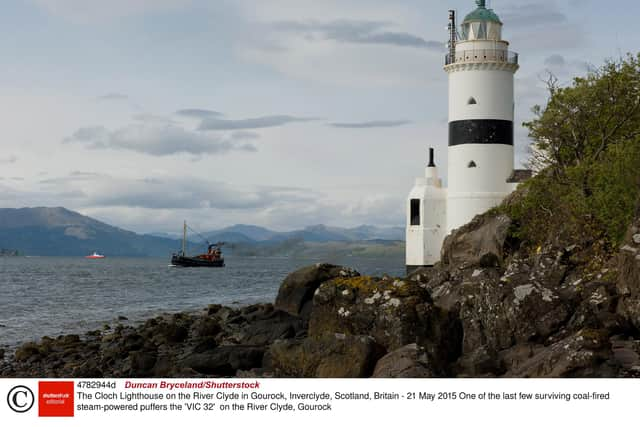The 42 islanders killed at sea 200 years ago as they headed to the harvests - with no justice served
But 42 of the islanders, some from Iona, never made it to the lowlands that summer after they drowned when a steam tug ploughed into their stationary wooden sloop as many of “the harvesters” slept.
They had been thrown into the water near Cloch Lighthouse at Gourock by the Hercules, owned by the Clyde Shipping Co and which was carrying a group of its employees and guests on a weekend excursion from Glasgow to Ailsa Craig and Campbeltown.
Advertisement
Hide AdAdvertisement
Hide AdAmong the islanders who died were Catherine MacCallum, 13, brother and sister Donald and Mary MacKechnie and boat owners Allan and Hector MacInness. One man lost his wife, two daughters and a son in the catastrophe, but no one has ever been held accountable.
The Lord Advocate claimed the passengers were culpably killed due to extreme “carelessness and inattention” but the case was thrown out at the High Court in Glasgow after a judge agreed with the defence’s position that the court had no jurisdiction over the matter.
Tom Aitchison, of Ross of Mull and Lanarkshire, has brought details of the case to light after researching court papers linked to the sinking and plans to hold a memorial service on Mull this August to mark the 200th anniversary of the tragedy.
Mr Aitchison, 73, a retired university statistics lecturer, who described the court’s decision as a “miscarriage of justice” said: “I’d like the people – and what happened to them – remembered.
"These people left Mull in search of work. I don’t think we can really imagine how hard going it was on the island at the time but the harvests on the mainland gave them some opportunity. But they never made it."


Relatives travelled to Gourock to find their loved ones with one mother, a Mrs McDugald, never leaving a search boat until her daughter was found. The girl and her fellow harvesters were laid to rest in unmarked graves in Greenock and Gourock after townspeople raised money for the burials.
Although the Lord Advocate later said those on the Hercules, which carried 40 to 50 passengers, were sober that night, Mr Aitchison said he remained “quite dubious about the amount of alcohol that was on board”.
At the time of the collision, the captain of the Hercules was “in his cabin with two passengers looking for his compass” with the boat left to the master of another company tug and two able seamen.
Advertisement
Hide AdAdvertisement
Hide AdWhile the sloop, the Catherine, was spotted by the pilot, the Hercules kept heading towards her with a number of islanders crying out for it to stop and one trying to fend it off with an oar.
He added: "The pilot keeps on steaming ahead and goes straight into the Catherine. There was little that those on board could do. The steamer carried on and it took 25 to 30 minutes for it to return.
Mr Aitchison added: “There was no day in court. Perhaps the prosecution was not as vigorously pursued as it might have been because the islanders were deemed second hand citizens. Perhaps also, the steamship company had much more sway with the legal establishment than non-English speaking Highlanders.”
Comments
Want to join the conversation? Please or to comment on this article.